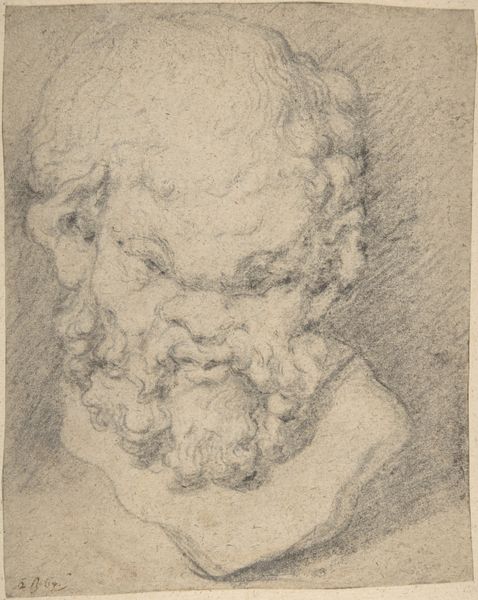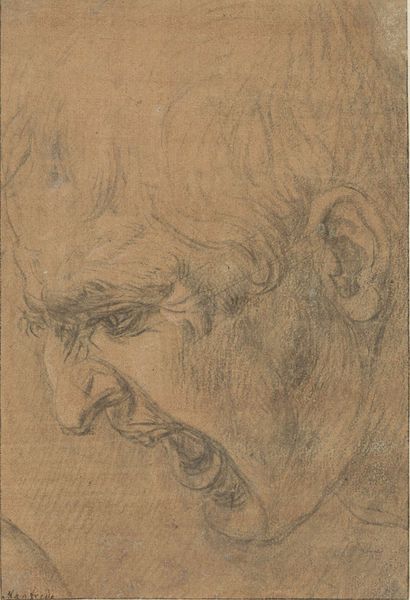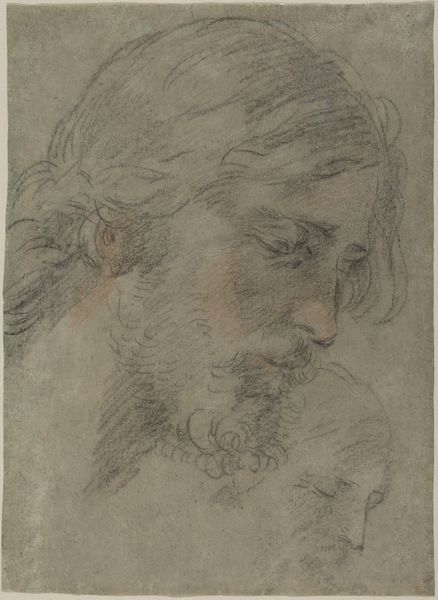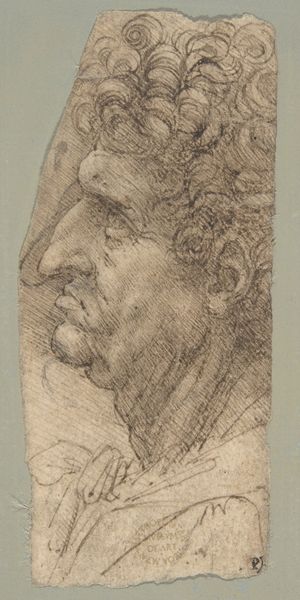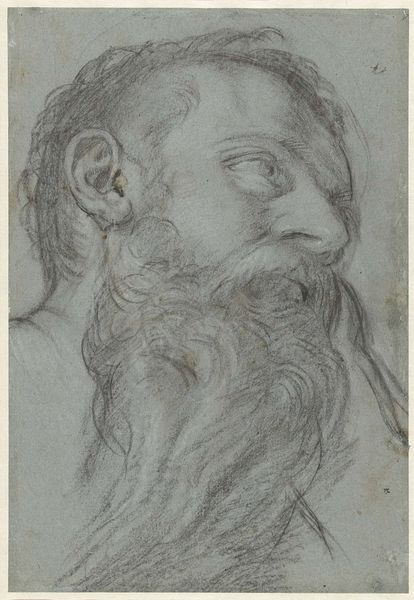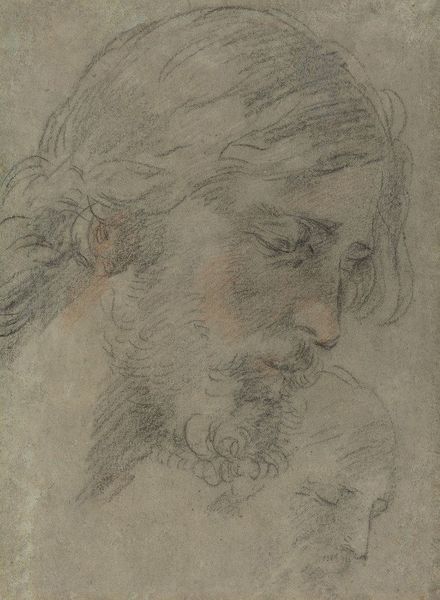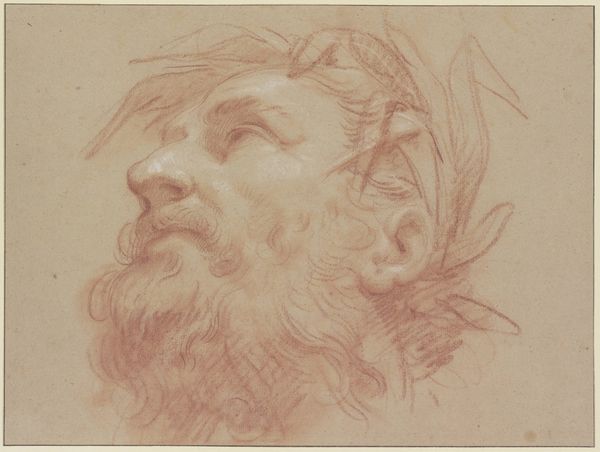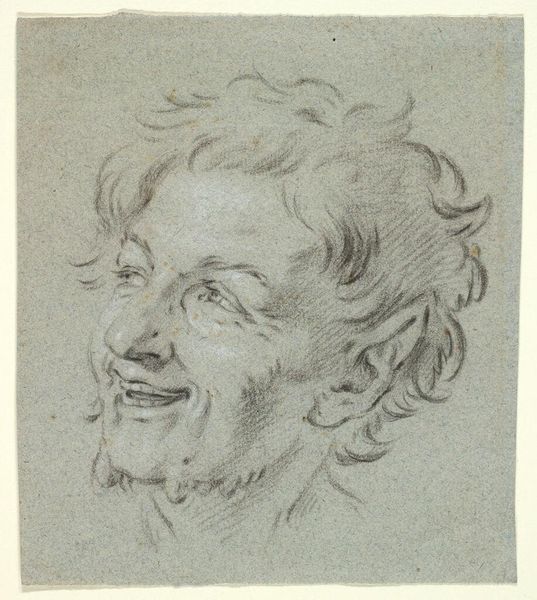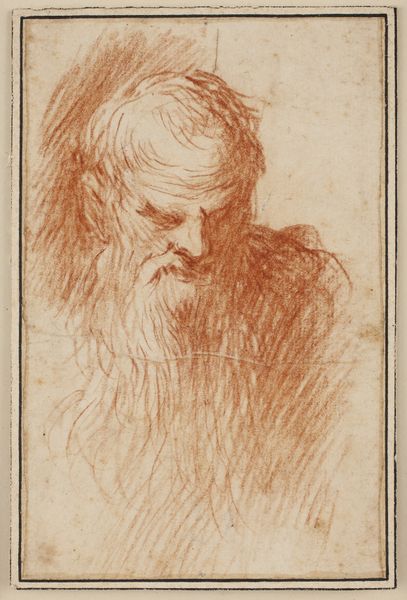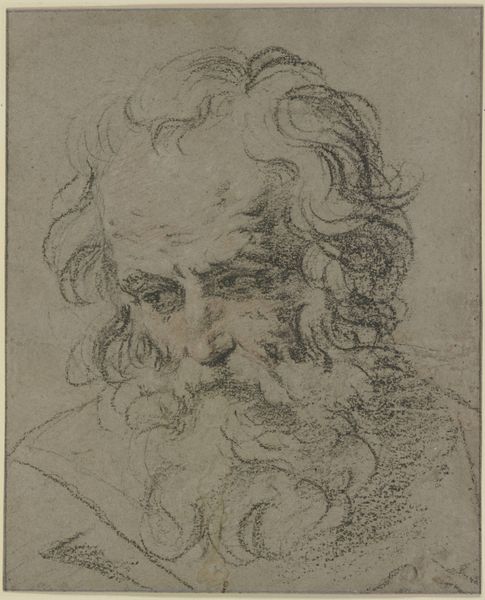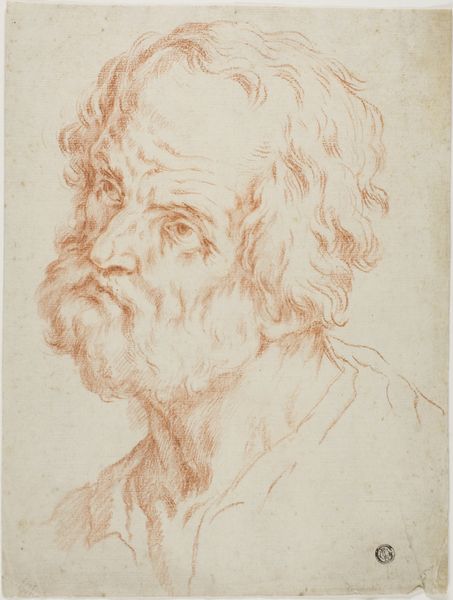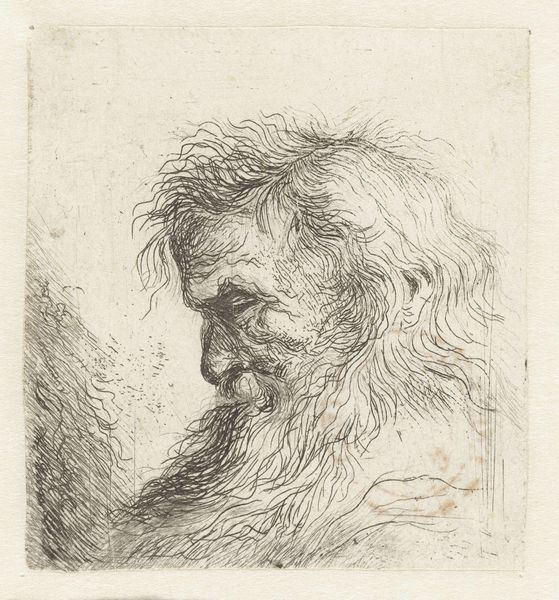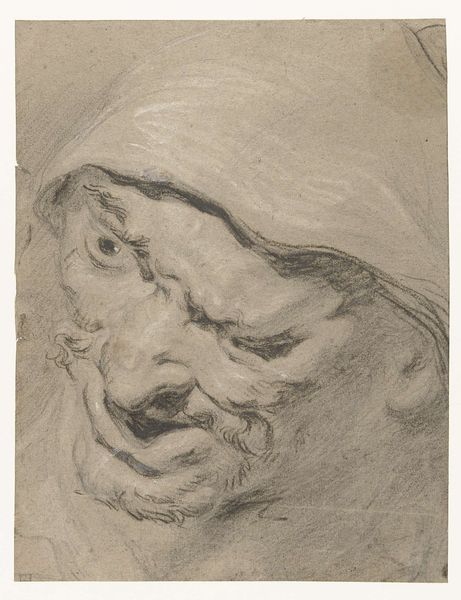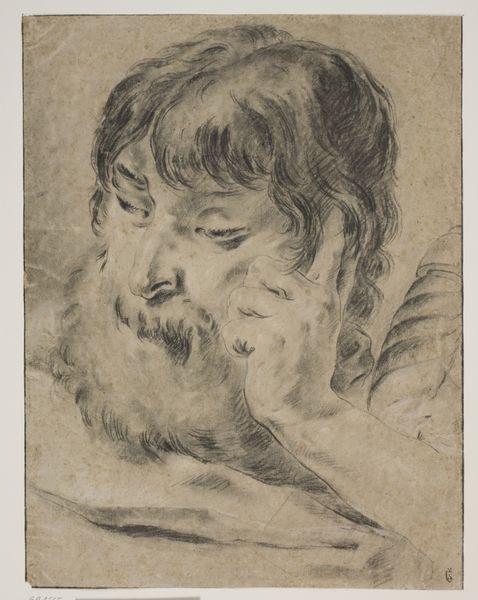
drawing, charcoal
#
portrait
#
drawing
#
baroque
#
charcoal drawing
#
charcoal
Dimensions: height 274 mm, width 212 mm
Copyright: Rijks Museum: Open Domain
Anthony van Dyck rendered this study of Bacchus's head in black chalk, heightened with white, on a blue paper, sometime in the early 17th century. Van Dyck's choice of materials is crucial here; chalk allowed him to achieve subtle gradations of tone. The texture of the paper creates a soft background, enhancing the sense of depth and volume, something of the atmosphere of a live studio encounter. Drawings like this were essential to the workshop system of the Baroque era. As a preparatory study, this work demonstrates the division of labour and delegation of tasks among assistants. Van Dyck, as the master, would have set the standard and example, but he would have had many studio hands executing his vision. Considering the drawing's material and process gives us insight into the social conditions of its making, underlining the labour-intensive nature of artistic production, even when seemingly spontaneous. By attending to such works, we can better appreciate the rich and complex reality of art history.
Comments
No comments
Be the first to comment and join the conversation on the ultimate creative platform.
